|
The revised version of Sam Mustafa’s tactical Napoleonic rules, Lasalle, has been some time coming. If I recall rightly, it was first trailed in mid-2019 with the aim of landing in 2020. The release timeline then went vague, presumably in part due to Covid, and it finally appeared in February this year. As he usually does with new rules, Sam put various teasers and extracts on the Honour website in advance, including two quick reference sheets: one over several pages and a single-sider for hardcore players. I bought the new rules in pdf and print. As is now the Honour standard, they are well laid out, clearly written and nicely illustrated. There are also several opportunities to find out why a rule was written as it was and generally to understand the author’s design philosophy. If you haven’t read the rules yet, I’d say their most important feature is the lack of a fixed player turn or sequence of play. Both players begin each turn with a variable number of momentum points, with which they can pay for various actions. The initiative can pass between the two sides several times until both run out of momentum, when the turn ends. The order in which a force might move, fire, change formation, charge or rally is entirely up to the player. It makes for some tough choices, careful timing and steady nerves. After a read-through of the rules and some solo moves I thought Lasalle 2 looked promising, but I was finally able to test it with live opponents last Friday, in our first face to face game since March last year. Now, I suppose I should aim off a bit for the excitement of live gaming after such a long break, but I had a fantastic time and was absolutely delighted with these rules. A brief battle reportWe used the Markkleeberg scenario from the first day of the battle of Leipzig, on the scenarios page here. Dan took Poniatowski and his Poles, reinforced later by French from Augereau’s Corps. Spencer took the role of Kleist, assaulting the village and the high ground to its north east with the Prussian 12th Brigade and 14th Russian Division. Dan deployed the Vistula regiment in Markkleeberg and the rest of his infantry behind the stream, with artillery on the hill behind. He divided Uminski’s Cavalry Division, putting the cuirassiers on the eastern flank and the Krakus and horse artillery behind Markkleeberg in the West. Spencer masked off the village with three artillery batteries and massed the rest of his force on the eastern half of the table, with the Prussians in front of the Russians. Spencer advanced on the Polish line behind the stream, halting to exchange fire while his landwehr lancers sent Dan’s cuirassiers packing in an upset victory (I bear some responsibility for this: I encouraged Dan to come forward, assuring him he wasn’t running a big risk. I was wrong. All things considered, he was remarkably good about it!). Dan’s artillery did some impressive damage early on, destroying a Russian battery and disrupting several battalions. Spencer’s troops were initially packed in a small area so suffered a fair bit from bounce through, although they rallied most of this off. The Polish Infantry in line had the better of the firefight with the Prussian columns, as one would expect. Dan then decided to exploit the disruption of the left hand Prussian column by crossing the stream and attacking it. This was a great success and the Prussian unit was destroyed. Dan used the ‘huzzah’ counter to then bowl into the flank of the next unit along, in which the odds were stacked in his favour. However, Spencer achieved his second upset victory of the game, which stopped Dan’s attack and saved Spencer’s bacon. The attack had been so well conceived that Spencer actually apologised for defeating it. On the western flank, the artillery duel didn’t do much damage, except when Dan took it into his head to send the Krakus skittling South past Markkleeberg, where they took a pasting from Spencer’s cannon and scuttled back to their starting position with several empty saddles. It appears that Dan had heard of the Charge of the Light Brigade but didn’t know how it turned out.... It was his only misstep in an otherwise masterful game. Back East, reinforcements arrived for both sides, in the nick of time for Dan as Spencer was just swinging around his flank and racking up kills. The landwehr lancers wiped out a French battery soon after it entered the table and two Prussian columns destroyed Dan’s eastern-most Polish battalion. The French reinforcements managed to plug the gap in the line but Spencer was one unit away from inflicting sudden death on the Polish side. In the final stage, Dan sent his three surviving Polish battalions over the stream and into the Prussians with whom they had been engaged for most of the game. The Poles had inflicted more losses in the preceding firefight and so were in better shape, but even so we were not expecting quite the success they enjoyed. First one, then a second Prussian battalion was destroyed, pushing Spencer past his sudden death limit. “What do you think of the rules so far?” “Brilliant!”We thoroughly enjoyed the game and were greatly impressed by the rules. The momentum rules at their heart work smoothly and keep both sides involved throughout the turn. The concepts are easier to play than they are to explain and the fluid sequence of play makes for a tense and exciting game. The simple movement rules spared us the fiddling and bickering that accompanies some tactical rules I know. The rules don’t impose a straitjacket on the players but they reward ‘historical’ deployment and formations and punish rash actions, as Dan’s cavalry found out!
As ever, Spencer and Dan threw themselves into the game with good humour and sportsmanship. Although his victory was snatched from him, Spencer was so impressed by Dan’s game-winning attack that he was genuinely pleased it succeeded. It is always a pleasure to play with such people. I’d like to play Markkleeberg again but our next outing with Lasalle will see French and Bavarians facing off against Austrians. Lots of Austrians.
0 Comments
I have uploaded a Blucher scenario for the fighting at Laichling on 21 April 1809, between Marshals Davout and Lefebvre and the Austrian IV Corps under Rosenberg. In a foretaste of Aspern-Essling later in the campaign, this encounter really showed the quality of the Austrian soldier in a stand-up fight.
I first wrote a scenario for Laichling in the mid 1990s, for use with the Napoleon's Battles rules by Avalon Hill. I believe it translates well to Sam Mustafa's Blucher. However, thanks to the Covid lockdown I have not yet played the scenario against a live opponent, I don't normally upload scenarios that we haven't played but I do plan to play it once we can meet up for gaming later this month. I will report on how the game goes and make any tweaks to the scenario after that. The scenario is posted here |
Archives
November 2023
Categories
All
|
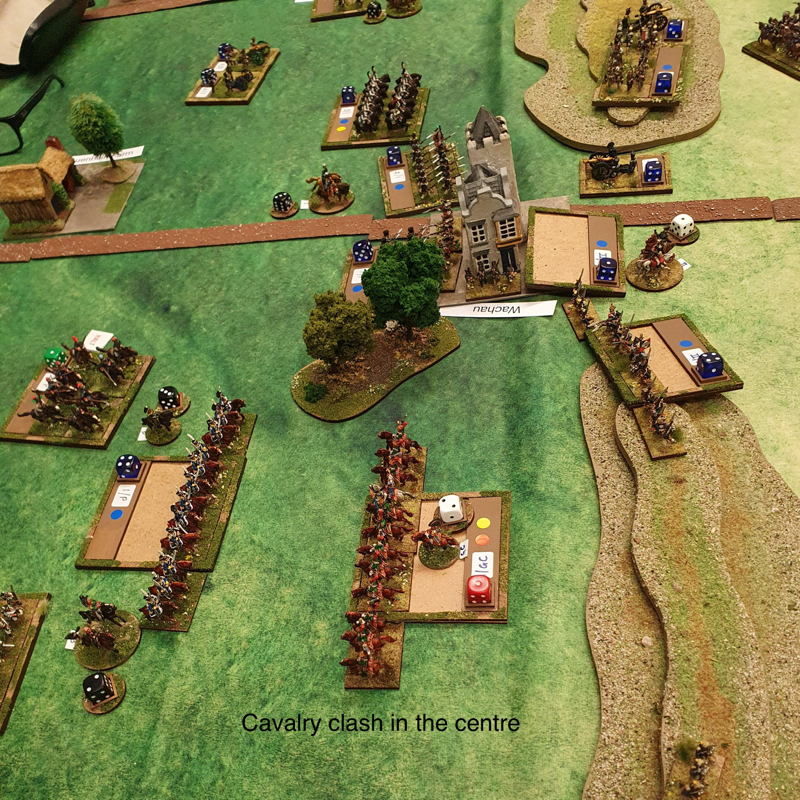
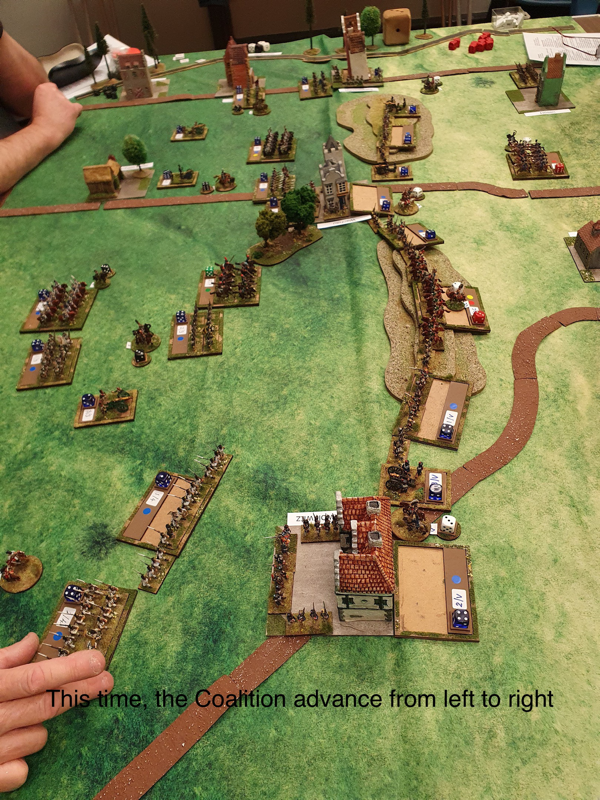
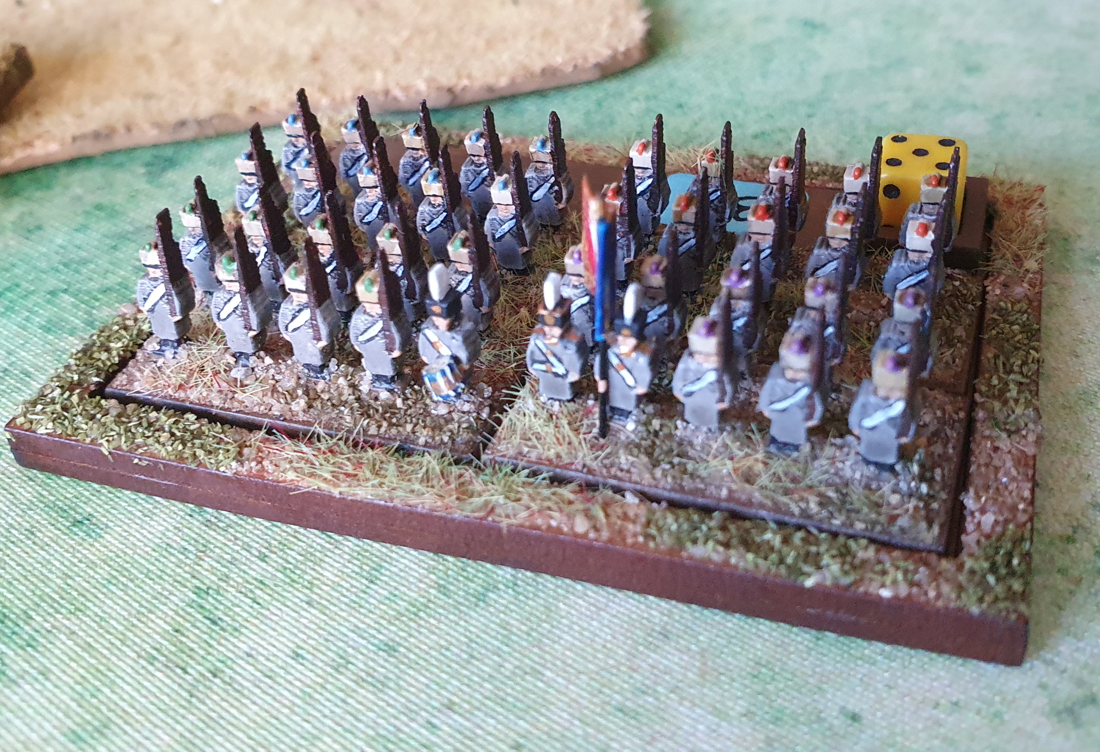
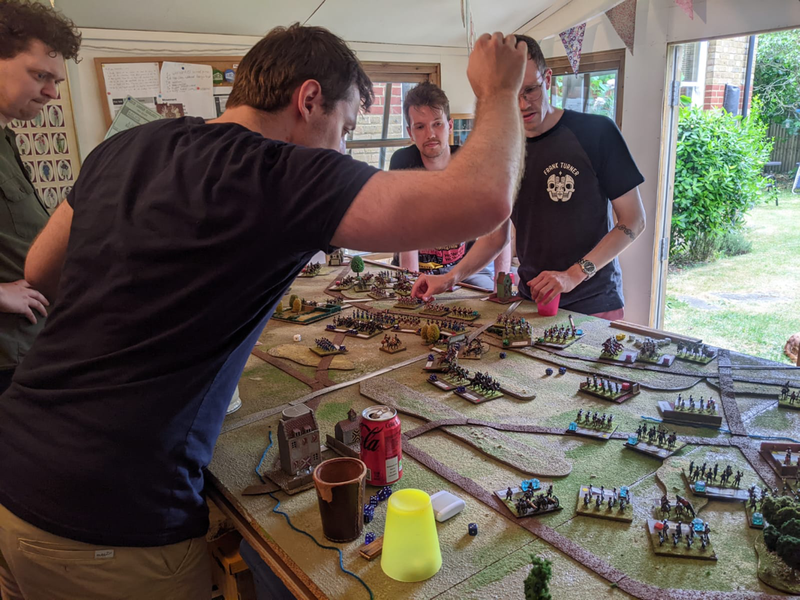
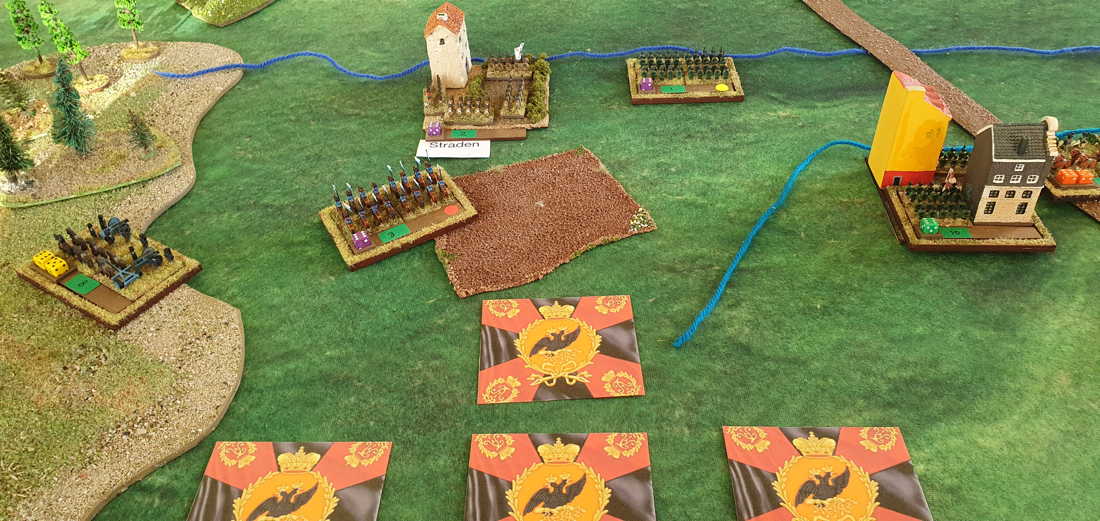
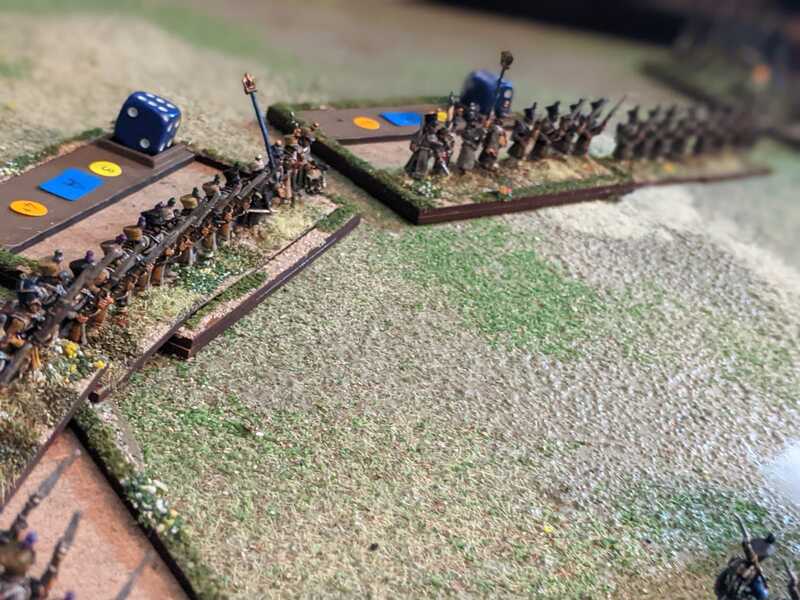
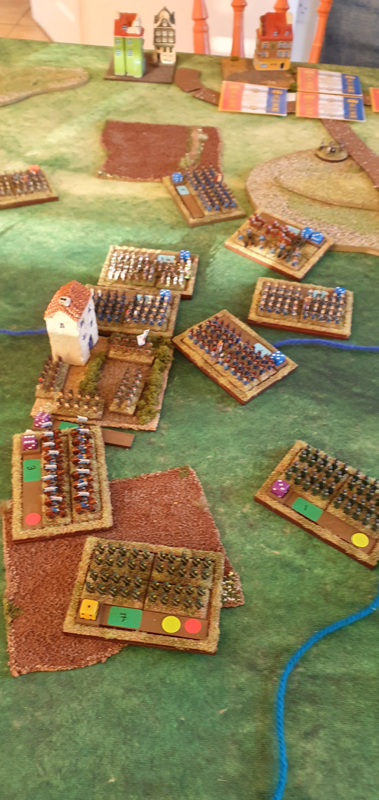
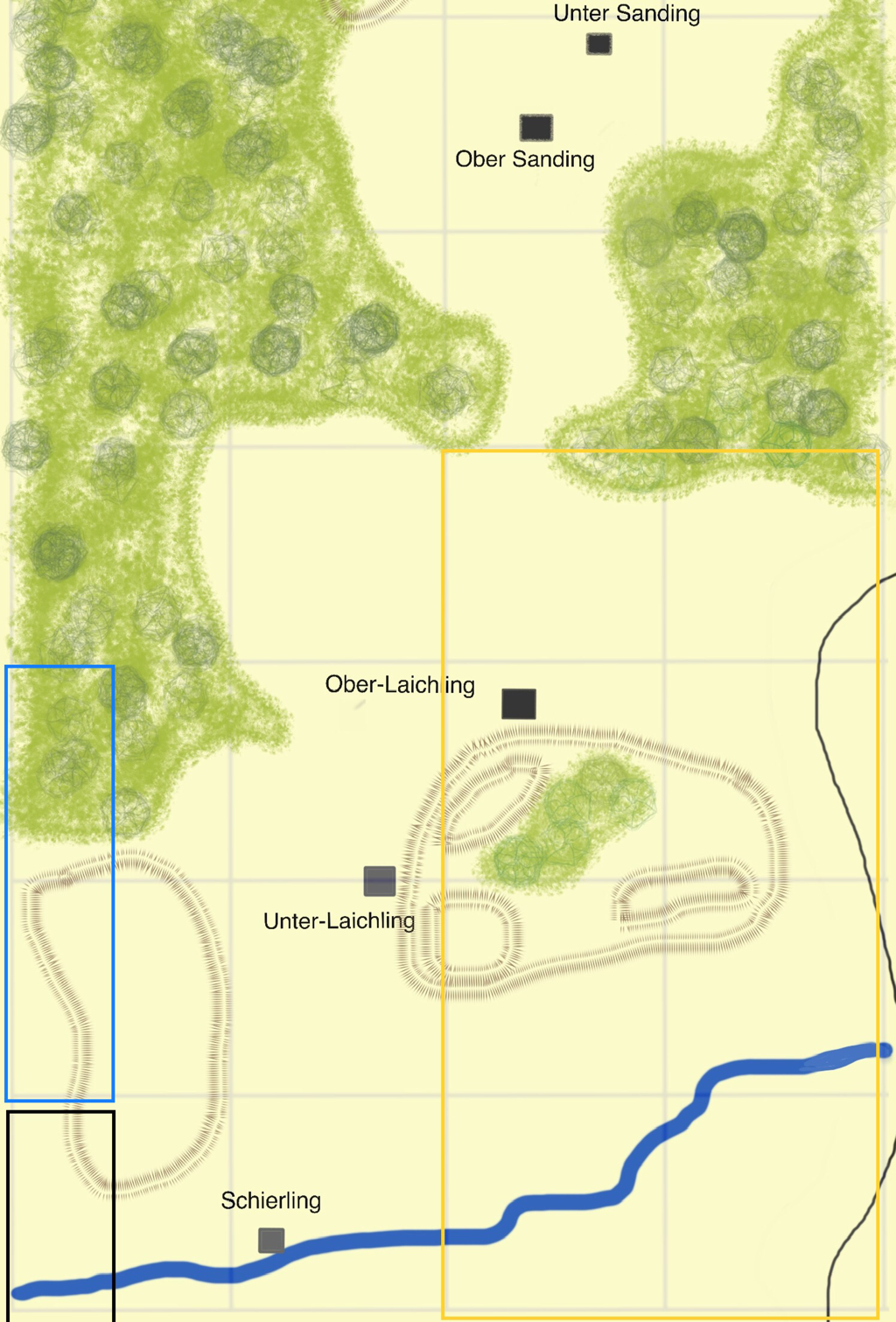
 RSS Feed
RSS Feed